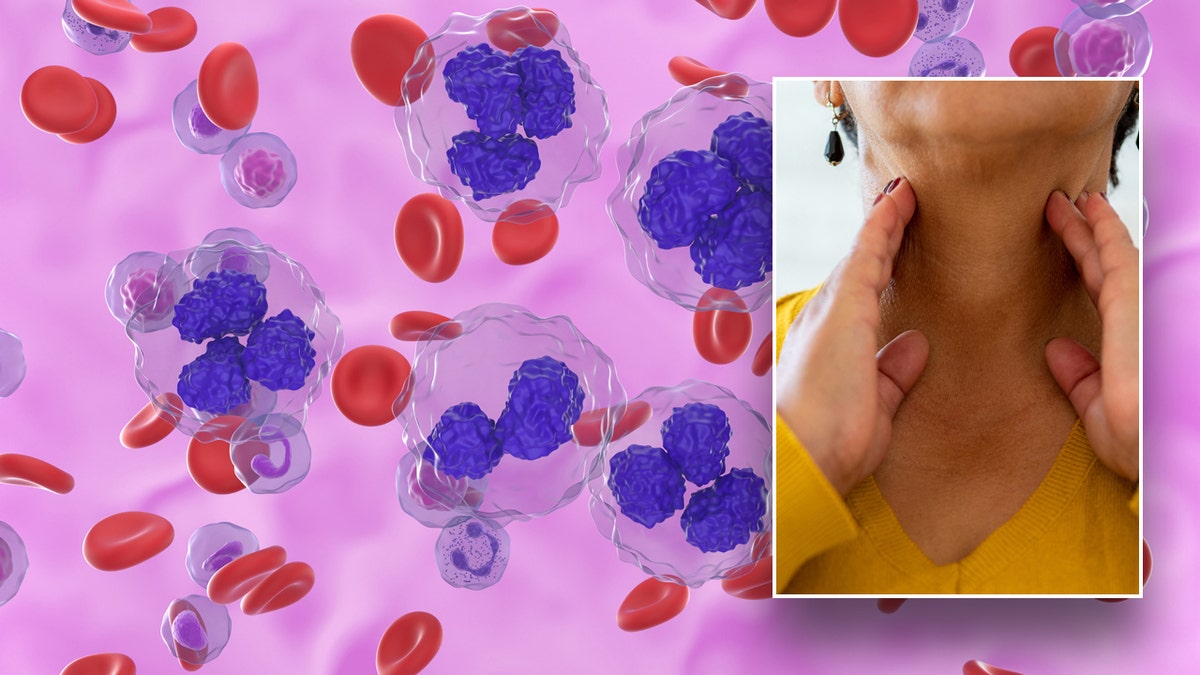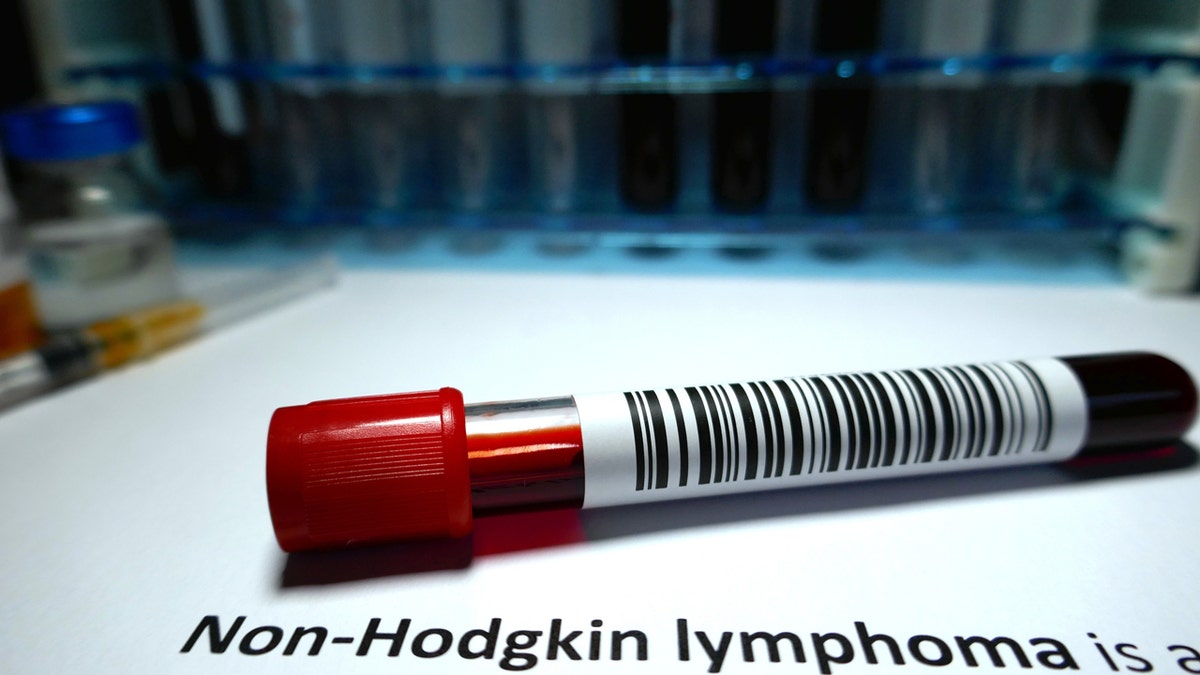Shocking study reveals tattoos may increase risk of lymphoma by 20%
Fox News medical contributor Dr. Janette Nesheiwat weighs in on news that boxing legend Mike Tyson experienced a recent ulcer flare-up and a new study indicating that tattoos may increase the likelihood of a lymphoma diagnosis by 20%.
Lymphoma is a type of blood cancer that targets the lymphatic system.
This type of cancer impacts the cells that are a part of one's immune system, according to the American Cancer Society.
There are several different kinds of lymphoma, including Hodgkin and non-Hodgkin.
BLOOD CANCER AWARENESS: COMMON TYPES, SIGNS AND TREATMENT OPTIONS
Non-Hodgkin lymphoma specifically is one of the most common in the United States, according to the American Cancer Society, and accounts for about 4% of all cases.
Below is everything you need to know about lymphoma.

There are two main types of lymphoma, Hodgkin and non-Hodgkin. Non-Hodgkin lymphoma accounts for the most cases. (iStock)
- What is lymphoma?
- What are the symptoms of lymphoma?
- How is lymphoma treated?
- Is lymphoma a serious cancer?
1. What is lymphoma?
Lymphoma is a type of cancer that begins in the lymphatic system.
The lymphatic system contains the lymph nodes, lymph vessels, spleen, thymus, tonsils, adenoids, lymph tissue and bone marrow, per the National Cancer Insititute's website.
Even though lymphoma starts in the lymphatic system, specifically the lymph nodes, it can potentially spread into other parts of the body.
CANCER TRENDS REVEALED, INCLUDING MOST COMMON TYPES OF THE DISEASE AND BIGGEST RISK FACTORS
There are two main types of lymphoma, Hodgkin and non-Hodgkin, with non-Hodgkin being the more common of the two, according to Siteman Cancer Center, accounting for 90% of all lymphoma cases.
These two types are broad classifications, but there are several subsets under each one.
There are over 90 different subtypes of lymphoma that have been identified by scientists to date, per Siteman Cancer Center.

There are nearly 100 different subtypes of lymphoma to date. (iStock)
2. What are the symptoms of lymphoma?
There are several common signs and symptoms that are laid out by the American Cancer Society, which are listed below.
- Enlarged lymph nodes (sometimes felt as lumps under the skin, especially in the neck, underarm, or groin area)
- Fever and chills
- Weight loss
- Fatigue
- Swollen abdomen
- Feeling full after only a small amount of food
- Chest pain or pressure
- Shortness of breath or cough
- Severe or frequent infections
- Easy bruising or bleeding
CLICK HERE TO SIGN UP FOR OUR LIFESTYLE NEWSLETTER
There are also symptoms categorized as "B symptoms" by the American Cancer Society, that are sometimes seen in patients with non-Hodgkin lymphoma.
These additional symptoms are as follows.
- Fever (which can come and go over several days or weeks) without an infection
- Drenching night sweats
- Weight loss without trying (at least 10% of body weight over 6 months)

One of the most common symptoms associated with lymphoma is enlarged lymph nodes. (iStock)
If you experience one or more of these symptoms without other explanation, make an appointment with your doctor to get checked and potentially discuss next steps.
3. How is lymphoma treated?
The way that lymphoma is treated depends on each individual patient and the severity of the spread.
For certain lymphoma patients, the cancer is very stable, and nothing more than monitoring is needed.
For more Lifestyle articles, visit www.foxnews.com/lifestyle
For others suffering from more severe cases, treatment for Hodgkin lymphoma may include chemotherapy, immunotherapy, radiation therapy or a combination of these treatment options, according to the Lymphoma Research Foundation's website. A bone marrow transplant or stem cell translation could be done in special cases.
For non-Hodgkin lymphoma, patients will typically receive similar treatment, including chemotherapy, radiation therapy, biologic therapy, immunotherapy or a combination of these, according to the source.

If you experience symptoms of lymphoma, see your doctor right away. (iStock)
4. Is lymphoma a serious cancer?
Lymphoma is serious in the sense that it can spread quickly.
That said, it is a very curable type of cancer.
There are numerous ways in which lymphoma can be diagnosed in an individual.
CLICK HERE TO GET THE FOX NEWS APP
One common, less invasive process of diagnosis that is often done in the earliest stages is a physical exam, according to Siteman Cancer Center.
To be sure of a lymphoma diagnosis, a biopsy will often be performed, according to the Lymphoma Research Foundation.

